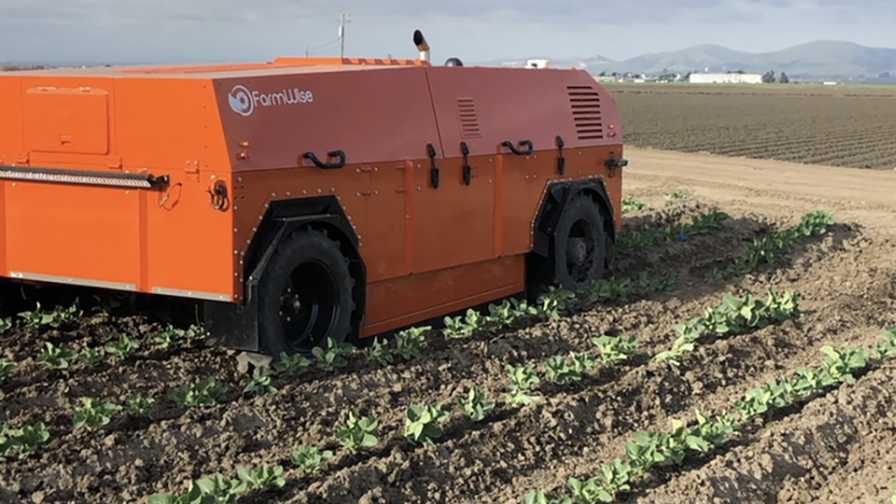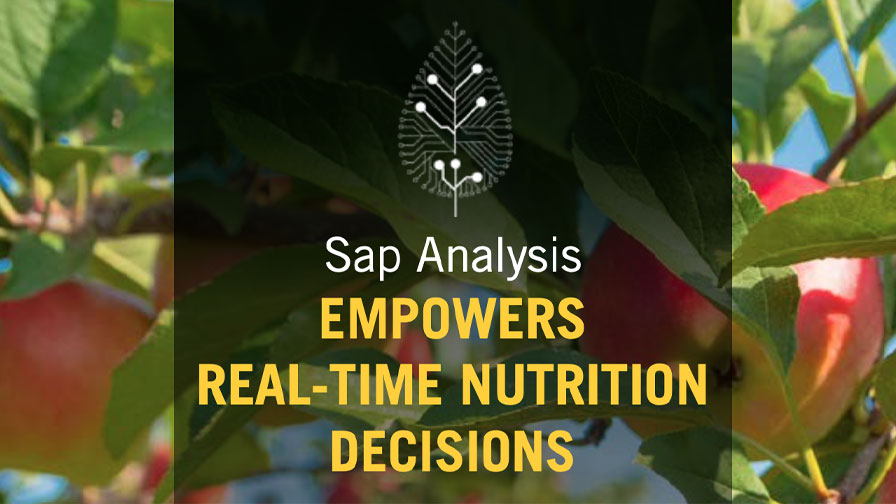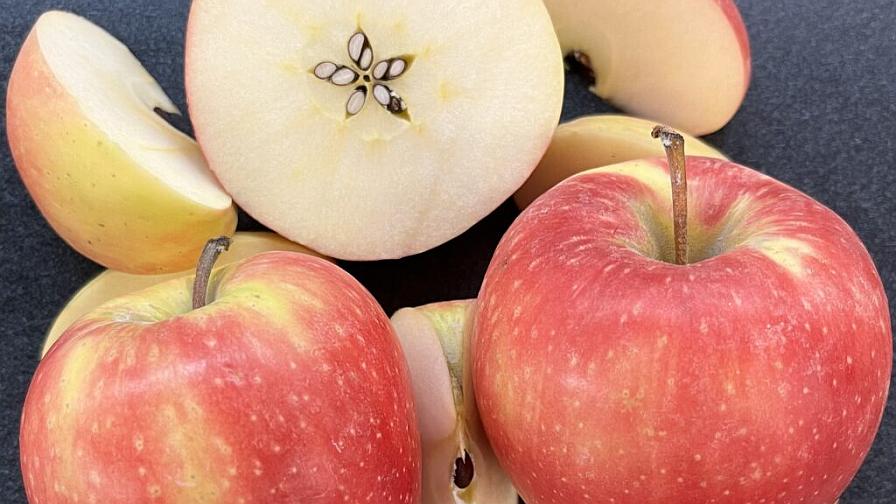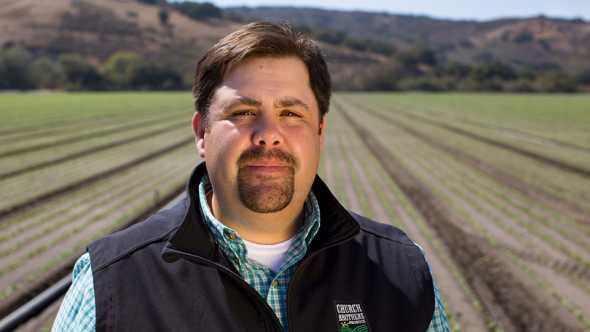Church Brothers Farm: Collaboration is Key in Ag Technology

Church Brothers Farm is experimenting with automated weeding in its fields thanks to this prototype. Photo courtesy of Church Brothers Farm
California, with its $15 minimum wage requirement and a shrinking rural job base from which to find workers, is the perfect case study in how economics can drive ag tech innovations.
Golden State growers learned long ago that pleading with local politicians and sounding off on Facebook about labor woes doesn’t pay the bills. So farmers in the state are looking at any and everything to automate processes and right size their labor spends.
But farmers also know, perhaps better than most, that it’s difficult to be a master of all things. Thus, the growers up and down the California coast are often turning to partnerships with ag service providers, tech providers, and equipment dealers to bring the expertise they need into the farm gate.
Josh Ruiz, Vice President, Ag Operations, with Salinas-based Church Brothers Farm, knows this all too well. Ruiz is in charge of evaluating and integrating new ag technologies for the vertically integrated, multi-state grower, packer, and shipper of fresh vegetables.
As Ruiz tells it, in the beginning it was a lot of trial and error. Then, the 42,000-acre outfit got smart and started searching for like-minded experts they could work with.
“We started down this road four or five years ago. We’d come up with concepts and designs for retrofitting technology onto older equipment, making our own prototypes, that sort of thing,” Ruiz remembers. “Once the prototype was good enough to go to the next level, we hired a machine shop that had the engineers that could translate our prototype into a full-blown machine.”
And that, as Ruiz tells it, is how Church Brothers had their first big home run in ag tech with the automated broccoli harvester that now graces its fields.
“There essentially is not a whole lot of brains to (the machine), but it allows us to take our crew from 25 to 20 people down to about 10,” he adds. “It’s automation giving us the ability to have labor savings.”
Ruiz and the team at Church Brothers are also concerned for the future of ag labor in California, as — generally speaking — younger generations tend to prefer white versus blue collar when it comes to jobs.
“It’s very labor intensive, the fresh vegetables business, and California’s labor rules and regulations are getting to the point where either there isn’t enough available labor (for the season), or it’s too expensive to make a profit,” Ruiz says.
Collaboration Remains Key
Where Church Brothers is finding the most success when it comes to integrating technologies is working with outside companies, not only locally, but from across the pond as well.
“We have a local company doing some robotic weeding for us, and we’ve got a French company that has a prototype that we’re working with, so there’s a lot of opportunity here on the farm,” Ruiz explains.
The focus now for the group in Salinas, as well as at sister sites in Yuma, AZ, and San Juan Batista, CA, is non-chemical weed-removal rigs.
“Most of them are mechanical (removal), and we’re just now diving into using fire, and I’m trying to find someone that can do lasers for me,” Ruiz says.
The flame-shooting rigs that can vaporize weeds are especially intriguing since they can serve a dual-purpose that a lot of growers are unaware of to this point.
“It’s honestly being used more so on insects than on the weeds, because we’re able to control insects without chemicals through the use of fire and high-temperature air,” he explains. “Most bugs that we deal with are soft bodied, and at 400° degrees a split-second exposure is enough to kill them.”
Learnings to Share
Through his half-decade, still winding journey into the world of specialty crop ag tech solutions, Ruiz has developed a unique viewpoint on how farmers can adopt technology and be successful doing it.
“The one thing that is universal is if you want to do technology, you’ve got to take the leap and do something. You have to take a swing at the ball,” he says. “Sure, you might miss at first because this stuff is so new and innovative, but if everybody just sits back and waits (to adopt) then there won’t be any innovation in agriculture. At least in our little world of fresh vegetables.”
 Ruiz sees parallels right now between the early days of broad acre, row crop precision ag and where we are right now in specialty crop technology. Corn and bean farmers were eager and willing to jump in feet first, and vegetable growers have to embrace a similar mindset, he argues.
Ruiz sees parallels right now between the early days of broad acre, row crop precision ag and where we are right now in specialty crop technology. Corn and bean farmers were eager and willing to jump in feet first, and vegetable growers have to embrace a similar mindset, he argues.
“Fresh vegetables is a very tough industry to break into when you’re coming from the outside,” he explains. “So my recommendation is to just try it and do something. It might not work out on the first go around but keep at it and be persistent.”
From Failure to Success
You can imagine all of the various technologies a guy like Ruiz looks at in any given year. It’s a given that some will just not work out, like the chemical lettuce thinning machine that Church Brothers tried to integrate unsuccessfully a few years back.
What went wrong?
“To be honest about it, it didn’t work,” Ruiz remembers. “And it didn’t work because we have these expectations that technology will be just like humans. That’s a false expectation.”
Asked to share a time where a technology failed in the early going but ended up working out in the long run, Ruiz has another story to tell.
“I hired this drone company that at that point had never done anything in vegetables before,” he recalls. “They came out and I got the whole ‘We’ll increase your yields and lower your costs and predict all of these things.’
“So I said, ‘Ok, that’s great. Where do I sign up?’ and I paid all of the money and I told those guys ‘Let’s go.’ In the end I ended up with nothing. Literally, nothing. Zero, zilch, nada. I wasted all of that money on some really nice drone pictures of my fields.”
Luckily though, the relationship didn’t end there. Although it could have, but Ruiz remained patient and open-minded.
“I’ve got to give them credit, though, because they recognized that it didn’t work, and they admitted, ‘Hey, we didn’t know what we didn’t know,’ and asked if they could come back and collaborate with me on the farm and learn about the business. And today they are a very successful drone operation, and I chalk that up largely to the fact that they were open to coming back to the table with us.”
More often than not, when a tech failure happens on the farm, the farmer gets a bad taste in their mouth about ag tech in general, and they begin to shut down to other potentially useful innovations.
Don’t be that guy, Ruiz says.
“That happens all of the time, because five minutes into the trial the technology isn’t perfect and the farmer decides right then and there to just walk away,” he says. “The fact is, this stuff takes time. I mean, listen, if this were easy smarter people than us wouldn’t be working on it. There’s nothing easy about being innovative, I don’t care what industry it is.”
Church Brothers Operation at A Glance
- Founded: 1999
- Employees: 2,500 (it started with just 5)
- Principals: Brothers Tom and Steve Church
- Vegetable Crops: Lettuce, Arugula, Broccoli, Cabbage, Cauliflower, Cilantro, Bell Pepper, Parsley, Spring Mix, Spinach, Kale
- Acres: 42,000 across California, Arizona, and Mexico
- Main Customers: Food Service and Retail











